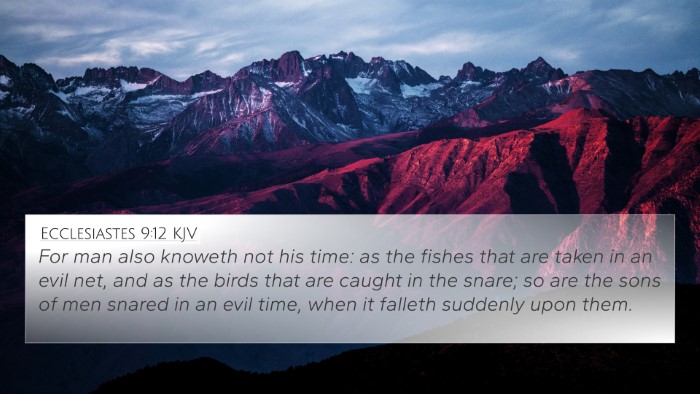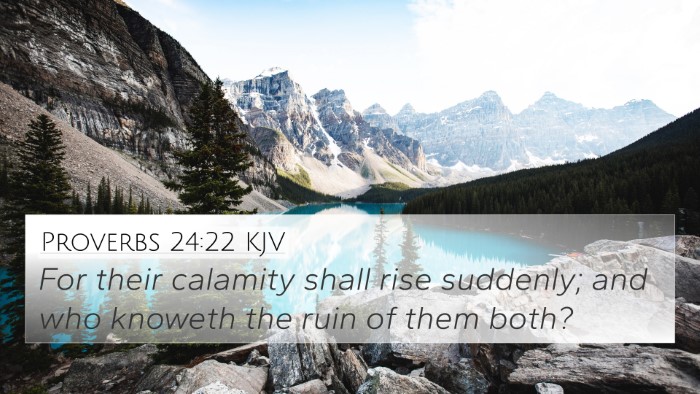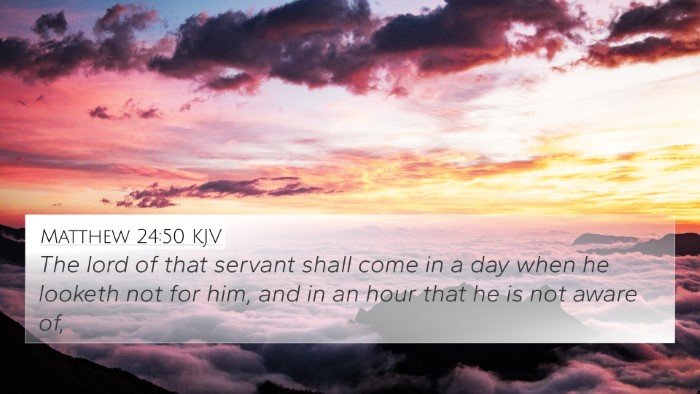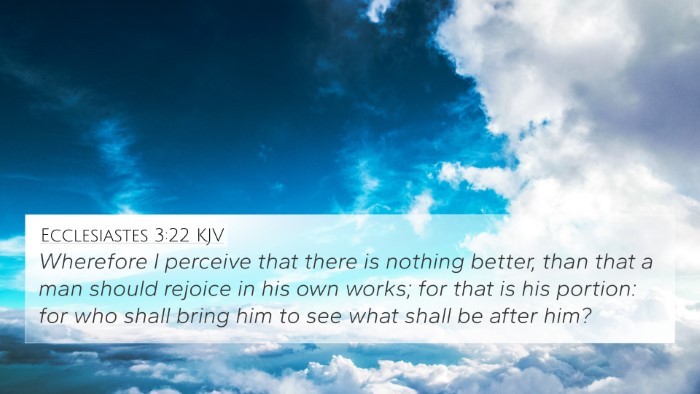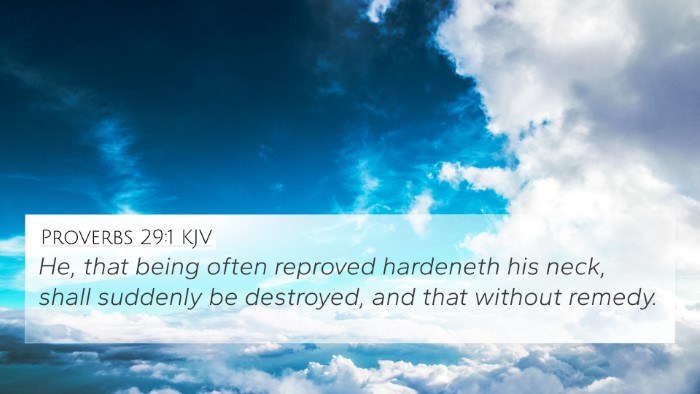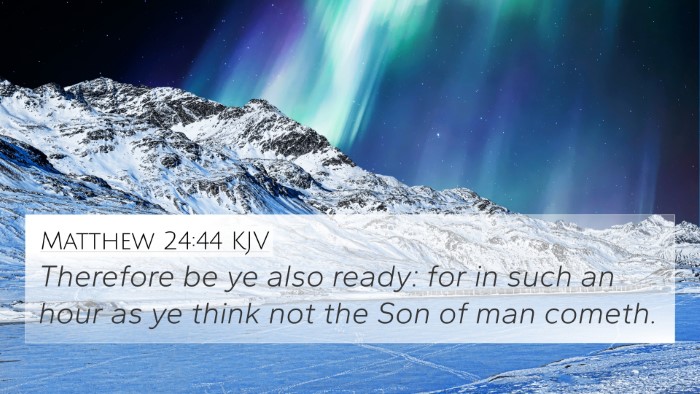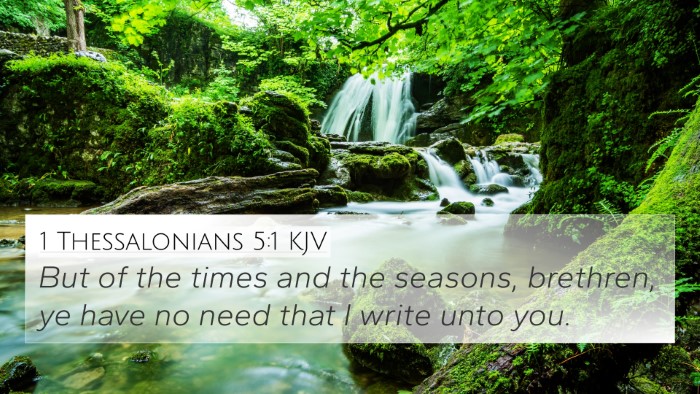Understanding Ecclesiastes 8:7
Ecclesiastes 8:7 states: “For he does not know what will happen; so who can tell him when it will occur?” This verse reflects on the uncertainty of the future and the limitations of human wisdom.
This passage invites us to contemplate the nature of knowledge and foreknowledge in the context of God’s sovereignty. Let's explore the insights provided by various public domain commentaries to deepen our understanding.
Commentary Insights
Matthew Henry
Matthew Henry emphasizes that the uncertainty of future events is a fundamental aspect of human existence. He points out that despite our best efforts to gain knowledge and understanding, there is a limit to what we can know. Henry stresses the importance of acknowledging our lack of control over future events and encourages reliance on God’s wisdom.
Albert Barnes
Albert Barnes interprets this verse as a reminder of the futility of human speculation regarding the future. He remarks that no one can predict with certainty what is to come, and suggests that this limitation serves to underscore the significance of faith in God. Barnes asserts that while humans may ponder and discuss the future, it ultimately rests in divine hands.
Adam Clarke
Adam Clarke elaborates on the theme of uncertainty, suggesting that the knowledge of future events is beyond human grasp. He points out that this verse serves to prompt humility in our approach to knowledge and encourages seeking divine guidance through prayer and reflection. Clarke’s interpretation beckons readers to trust in God's plan, despite life's uncertainties.
Connecting Themes
Ecclesiastes 8:7 is interwoven with several significant biblical themes, particularly concerning the limits of human wisdom and the dependence on God's sovereignty. Below, we explore connections between this verse and others that echo its message:
- James 4:14: “Whereas you do not know what will happen tomorrow…” - This verse reflects a similar sentiment about the uncertainty of life.
- Proverbs 27:1: “Do not boast about tomorrow, for you do not know what a day may bring.” - A reminder of life's unpredictability.
- Isaiah 55:8-9: “For my thoughts are not your thoughts, nor are your ways my ways…” - Highlights God's higher wisdom compared to human understanding.
- Job 14:5: “Since his days are determined, the number of his months is with You…” - Emphasizing the preordained nature of life.
- Matthew 6:34: “Therefore do not worry about tomorrow, for tomorrow will worry about its own things.” - Encourages a focus on the present.
- Proverbs 3:5-6: “Trust in the Lord with all your heart and lean not on your own understanding…” - Urging reliance on divine plan rather than personal wisdom.
- Psalm 139:16: “Your eyes saw my unformed substance; in your book were written, every one of them, the days that were formed for me…” - Acknowledges God's sovereignty over our life timeline.
Thematic Biblical Connections
The themes present in Ecclesiastes 8:7 resonate throughout the Bible, showcasing the inseparable link between human limitations and divine omniscience. By cross-referencing the verses mentioned, a clearer perspective emerges on the idea that human discernment pales in comparison to God’s wisdom.
Conclusion
In Ecclesiastes 8:7, we are reminded of the uncertain veil of the future, urging humility and dependence on God's eternal wisdom. The collective wisdom from various commentaries elucidates the necessity of seeking divine insight while understanding the limitations of our foresight.
Utilizing Cross-References in Study
When engaging with biblical texts, utilizing Bible cross-reference guides and tools can vastly enhance your understanding. Here are some effective methods to apply:
- Bible Concordance: Use concordances to find related scriptures and deepen your study.
- Bible Cross-Reference System: Familiarize yourself with systems that align related verses for a comparative analysis.
- Cross-Referencing Bible Study Methods: Implement various study methods to gather insights across biblical texts.
- Bible Reference Resources: Leverage reference materials that highlight thematic connections.
In conclusion, Ecclesiastes 8:7 serves not only as a reminder of our limitations but also as an invitation to cultivate a deeper relationship with the divine. By exploring cross-references and thematic connections throughout Scripture, we enhance our spiritual understanding.



